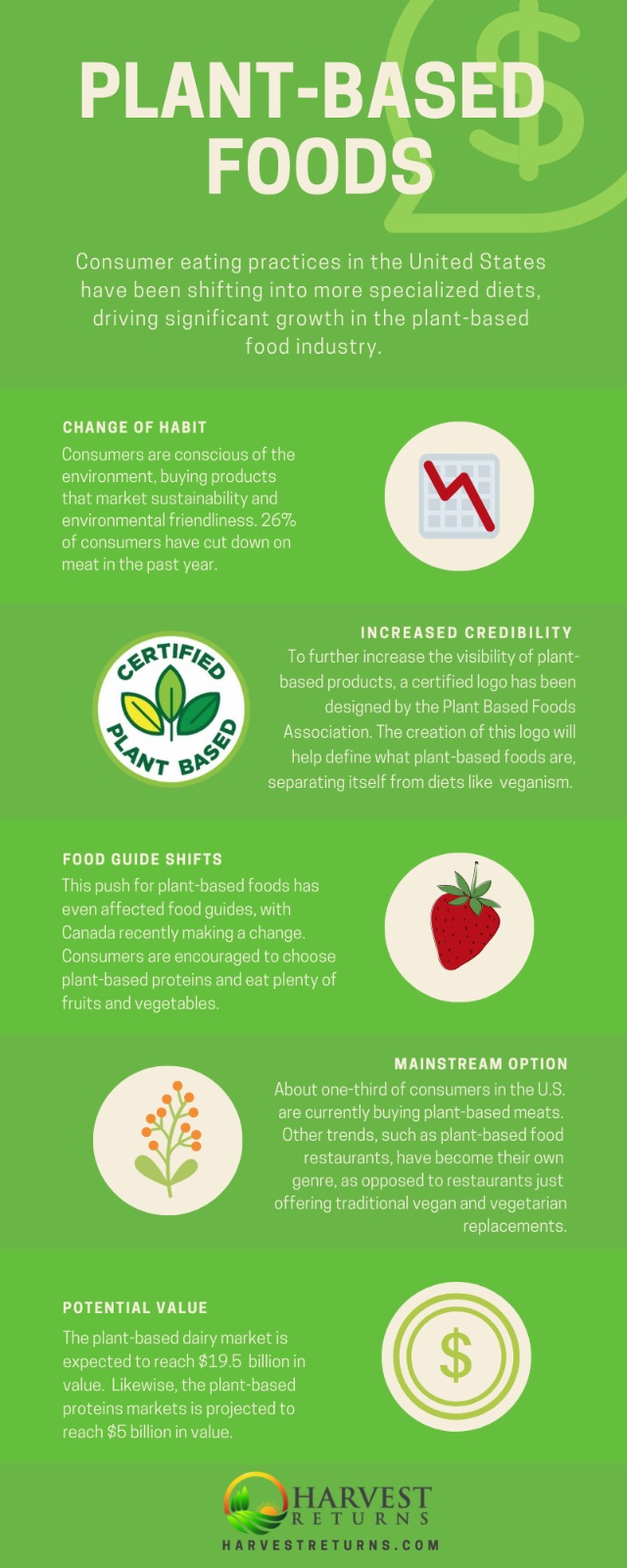By: Robert Jones
Consumer eating habits in the United States have been shifting into more specialized diets, driving significant growth in the plant-based food industry and a bright future. According to Nutrition Business Journal, 26% of consumers have cut down on meat in the past year, and this number could potentially rise.
Consumers Push for Rise in Plant-Based Diets
One of the main reasons plant-based foods are growing in popularity is because people are being more conscious of the environment. Eating food produced from sustainable agriculture practices makes them feel they are directly impacting the environment themselves. Recycling is another example of this consumer mindset, which is why more environmentally friendly food packaging are influencing our diet. This type of thinking has permeated all ways of life, especially agriculture.
Many people also believe plant-based foods are healthier than meat-based, though that theory is up for debate by the food science community. About one-third of consumers are currently buying plant-based meats, according to Mintel. The influence of practices such as vegetarianism and veganism have changed consumers’ perspective on what they put into their body, and plant-based foods have benefited because of it. As a point of evidence on the movement’s growing popularity, “vegan” is a leading trend on Twitter for 2019. Other trends such as plant-based food restaurants have become their own genre, as opposed to restaurants just offering traditional vegan and vegetarian replacements.
This push for plant-based foods has even affected food guides, with Canada recently making a change. Citing to “choose protein foods that come from plants more often,” Health Canada is leaning more towards plant-based products. Health Canada also recommends people should be conscious of the environmental impact of the food they eat.
Plant-Based Products Leading the Way
There are a few products in particular that are spearheading the push. Plant-based proteins are starting to create a foothold, and can be connected to recent diet trends as well. Ketogenic or Atkins are some of the diets that promote eating high-protein foods. With protein continuing to be in high demand, plant-based proteins are likely to stay. By 2020, the global plant-based protein market is projected to be valued at $5 billion according to Markets and Markets.
Dairy alternatives are also gaining popularity, with items such as soy and almond milk being the most notable. Starting as a small subgenre, the variety of yogurts, milks and cheeses that are created from soy, almonds, coconuts and nuts have made a mainstream market. Markets and Markets also project the plant-based dairy drink industry alone will be worth $19.5 billion in 2020.
To further increase the visibility of plant-based products, a certified logo has been designed. The certified logo is to help promote specifically plant-based meats, eggs and dairy products. According to the Plant Based Foods Association, the creation of this logo will help define what plant-based foods are to a mainstream audience, helping to separate from veganism.
Looking at where plant-based foods are now and where they could be in the future, this industry has made its mark on the global market. Consumers have pushed these products into high demand which can create large returns for investors.



